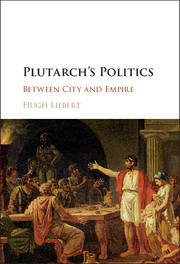Plutarch's Politics Between City and Empire
Langue : Anglais
Auteur : Liebert Hugh

Recasts Plutarch's Lives as a work of political philosophy emerging from the imperial encounter of Greece and Rome.
Plutarch's Lives were once treasured. Today they are studied by classicists, known vaguely, if at all, by the educated public, and are virtually unknown to students of ancient political thought. The central claim of this book is that Plutarch shows how the political form of the city can satisfy an individual's desire for honor, even under the horizon of empire. Plutarch's argument turns on the difference between Sparta and Rome. Both cities stimulated their citizens' desire for honor, but Sparta remained a city by linking honor to what could be seen first-hand, whereas Rome became an empire by liberating honor from the shackles of the visible. Even under the rule of a distant power, however, allegiances and political actions tied to the visible world of the city remained. By resurrecting statesmen who thrived in autonomous cities, Plutarch hoped to rekindle some sense of the city's enduring appeal.
Part I: 1. Ancients and moderns; 2. Ambition and political form; Part II: 3. Lives; 4. Lycurgus's Sparta; 5. Numa's Rome; 6. Parallels; 7. Conclusion; Bibliography; Index.
Hugh Liebert is an Associate Professor of Political Science in the Department of Social Sciences at the United States Military Academy.
Date de parution : 09-2016
Ouvrage de 284 p.
15.2x22.9 cm
Thème de Plutarch's Politics :
© 2024 LAVOISIER S.A.S.
